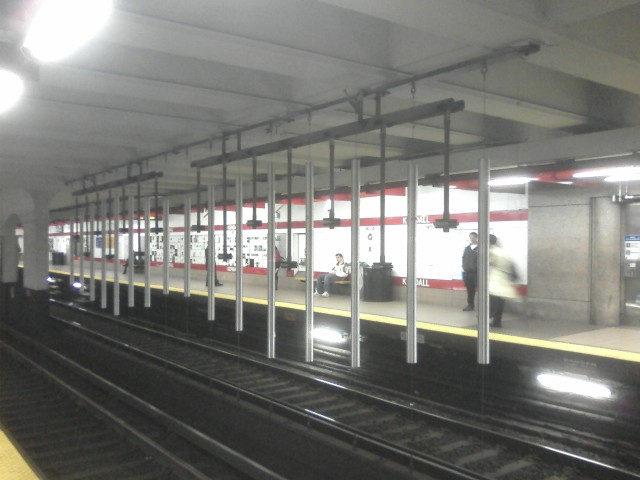The Kendall Band at the subway station on campus had been rusting away, with only the chimes — the part they call “Pythagoras” — working. The other parts, “Kepler” and “Galileo” I have never seen working in all the years I have been here. Then one day “Pythagoras” too was gone for repairs. They posted this note for half a year until suddenly, it was back!

“Pythagoras” is two identical sets of eight pipes that could be struck by seven different mallets each. The mallets are controlled by a bar that could be swung back and forth by an attached handle which the user controls on the platform. Before the repairs, I had never paid attention to its intricacies, partly because there was not much time to play with them in the time before the next train arrived, and partly because the old rusty version didn’t make great sounds and I thought they were just some randomly sized pipes. Plus, the handle lacked fine control, and the best one could do was to hopefully transfer as much energy as possible to even get the thing going.
When it came back new, it was looking much like a real instrument and now I wondered what else you could do with it besides swinging the handle back and forth like most people do. Surely you could play an actual melody, right?
(Read the article)

 Comments(1)
Comments(1)